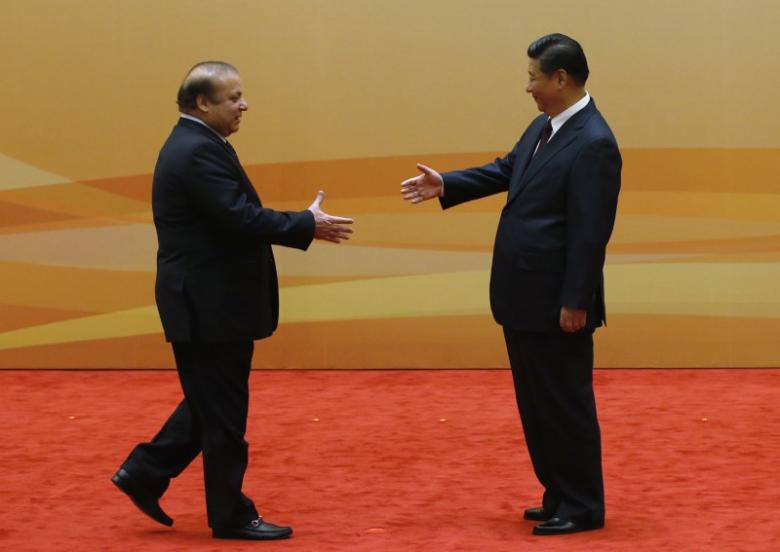

This extraordinary interest of Chinese businesses in Pakistan’s most lucrative sectors has been attributed by analysts to a desire on the part of these businessmen to make the best use of their government’s “One Belt, One Road” project to help expand. Not only this. China’s western region contains 71.4 per cent of mainland China’s area, but only 28.8 per cent of its population, and 19.9 per cent of its total economic output, as of 2009. The main components of the strategy chalked out to develop the Chinese western region include the development of infrastructure and retention of talent flowing to richer provinces. Chinese policymakers have allocated certain industries to core areas to match industries with local capabilities and resources. The China-Pakistan Economic Corridor (CPEC) will connect this region of China with Pakistan’s seaport Gwadar through a network of rail, road and pipeline projects. Meanwhile, China’s steel giant Baosteel Group is in talks over a 30-year lease for state-run Pakistan Steel Mills. Chinese companies have also shown interest in investing in the telecom and auto sectors. Pakistani companies are advisedly betting that Beijing’s splurge on road, rail and energy infrastructure under CPEC will boost the domestic economy. More welcome is the fact that the Chinese interest in buying into Pakistani businesses has emerged at a time when the interest of Western investors in Pakistan is on a steep decline despite decline in militancy. The Chinese interest comes as Islamabad and Beijing discuss the next phase of CPEC: how to build Pakistan’s industry with the help of Chinese state-owned industrial giants. Pakistani officials are drafting plans for special economic zones which would offer tax breaks and other benefits to Chinese businesses. The major concerns about this ‘extraordinary’ Chinese investment interest in Pakistan has come from some local entrepreneurs who feel they would be out-bided out of even the local market by the more cost-effective Chinese products. On the other hand, the trade unions’ fears are based on Western news agencies’ slanted reports of alleged mistreatment of local workers in Africa in the past by Chinese businessmen.
However, what Pakistani hosts should be asking themselves is, how best and quickly they can learn from the Chinese business practices, their work ethics and the high rates of productivity that the Chinese workers have achieved. Over the past several years the assistance that we have received from the US and Western capitalist-cum-imperialist countries has come with only negligible transfer of technology and modern industrial and business methods while increasing our dependence on dole of which almost 99 per cent has been going back in various shapes camouflaged in the fine print of the assistance agreements. And most of this dole has come with political strings attached that constantly eat into our sovereignty. The Chinese investment interest in Pakistan, on the other hand, should rather be regarded being more on the lines of Marshall Plan which the US had launched soon after World War Two to enable the economies of war-torn Europe to grow to an extent that would be mutually beneficial for both the donor and the recipient.
Published in The Express Tribune, February 6th, 2017.
Like Opinion & Editorial on Facebook, follow @ETOpEd on Twitter to receive all updates on all our daily pieces.



1730959638-0/trump-(19)1730959638-0-165x106.webp)








COMMENTS (4)
Comments are moderated and generally will be posted if they are on-topic and not abusive.
For more information, please see our Comments FAQ